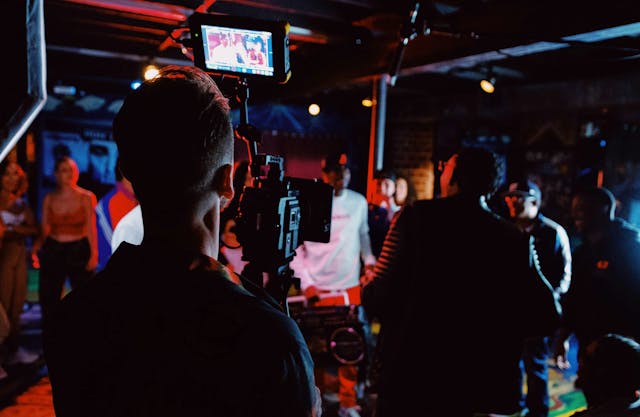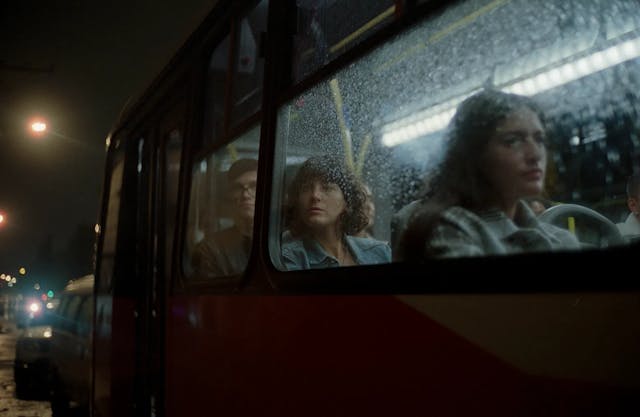Tequila Sunset: Juan Pablo Gonzalez Takes Us to "Dos Estaciones"

Mexican filmmaker Juan Pablo Gonzalez directed Dos Estaciones, one of the 2022 Sundance Film Festival high points. Part character study, part portrait of a community in the throes of transformation, the movie follows the travails of Maria García (Teresa Sánchez), owner of a Tequila factory in the Jalisco highlands, as nature and globalization conspire against her.
It is a very personal film for Gonzalez, who grew up in the region. The tequila factory we see belongs to his family. He has been making documentary shorts about the town of Atotonilco and its people for a decade. Now, they are at the heart of his first feature-length movie. Popflick caught up with him on the eve of the theatrical release in the United States.
Why did you decide to make Dos Estaciones a sort of hybrid of fiction and documentary?
After making several documentary shorts, I do not have this kind of direct cinema thinking, “I’m gonna capture reality. I’m gonna pretend this is reality and give it to the world!”. I think of documentary work as something very expressive. It manipulates reality quite a lot. When I edited my documentaries, I thought a lot about time; about compressing and expanding it. What is the meaning of putting two images together, shot three years apart? Also, the involvement of sound in all of this. How it stitches everything together, and creates its own thing, its world. To think about the documentary in those terms is almost thinking about it in fiction terms.
How did Dos Estaciones was born?
The first thing that came to my mind was María, her character. I was thinking about this generation of men and women from the Jalisco highlands. Some of their families started making tequila as early as the XVII century. When Mexico entered the globalized market, they went from being very local to geing national, to suddenly transnational, even global!
It happened pretty fast. It took about a decade for most of these factories to end up owned by corporations. These rural, provincial business people welcomed the world, and then, they were pushed aside. Now these brands are worth millions of dollars! I started to think about those who tried to fight against that, and the consequences of resisting such a brutal force.

María is a woman, but also a a queer woman. Why did you make these choices?
The process of constructing the character of Maria took a long time. It was important for us that the owner was a woman. The history of tequila is filled with very prominent women in the business, but all these famous tequila brands have male names, which is interesting. Like, Jose Cuervo, Don Julio…There is no Doña María Tequila!
We do not want to replicate these frivolous stereotypes around women in the region. The stereotype is that they are very feminine, fair-skinned, like someone out of a telenovela. A small portion of people are like that, just like everywhere in the world. Real people are not really like that.
We always thought that she was going to develop this relationship with someone she was going to hire. We cast Rafaela Fuentes, who became a really good actress. She is actually the administrator of this factory, and she has a lot of knowledge. You can feel it, in the way she speaks and moves around the factory. She knows what she is doing. And we knew this relationship had to be close. It is not that we set out to write a queer character for Maria. It was more like, every decision we took for the film made Maria the character she is.
Most of the people we see on screen are non-actors, performing characters who closely resemble who they are in real life. Was it hard to conciliate the work of a professional actress with non-actors?
It was not difficult at all. I knew I wanted to work with people from this region, not because I think non-actors are "more real" than non-actors. We are all performers at the end of the day. There is a certain expressivity of this particular region and this particular town that was very important to me to capture.
It took a few years to make the film, but we often traveled to Atotonilco with Teresa, who met everyone before we started shooting. She knew the place and the people, and the people knew her. But also, Teresa is an incredible actress! I feel like she is the best living Mexican actor there is. She is also very used to working with non-actors and with improvisation. She is a kind of dream actor, following the Sanford Meisner method, always present, always there to react. If the other person changes a line, she reacts to the moment.
We had two other professional actors, Manuel Garcia-Rulfo, who plays the agronomist, and is now the lead in the Netflix series The Lincoln Lawyer. I cast him because he is from Jalisco. He also cultivates limes, so he has a ranch and knows this kind of life. He also has a regional accent! Mexico City actors used to make fun of him because of it. José Luis Flores, the guy that Tatin develops a relationship with, is an actor and a painter, and he is from Atotonilco.
Tatín Vera, the hairdresser, is a trans woman. She presents an alternative queer experience to Maria's. She lives very freely, while Maria is very closed-in.
For us, to collaborate with Tatín was very important. She is a real person. That is her real salon, and she goes to that casino with her mom every Thursday. In a way, we are trying to show the contemporary existence in these places.
María y Tatín representan un cambio generacional, un cambio generacional completo. Seguramente Tatín es alguien que entró en Instagram, en sintonía con todo lo que está pasando en política de género. Es una manera muy diferente de vivir. María es un personaje femenino más tradicional de esta región.

No matter how precarious Maria's economic power is, it keeps her connected to people. By losing her business, she also might lose everyone.
I think that is probably the most tragic aspect of the film. She is closed off from people in her life, because of her status and what she has to live through. That is even more tragic than losing your business or your land. It is hard for her to relate to other people in a way that is not transactional.
You bring the making of tequila to the forefront of the movie. I felt as if I was getting a masters class on it! Why was it important to capture this process?
There are different ways of making tequila, so this is a very particular process. The factory had been struggling for many years. I did not know if it was going to remain open for much longer. I really wanted to document the way my parents run it. I've heard the tour that Maria gave Rafaela hundreds of times! This kind of passion, this desire for this factory to achieve the potential it could have, you can see it in Maria.
And also, things are being done about tequila out there that are awful! I wanted to be accurate and closer to the truth.
The movie is very good at giving you that sense of things changing, but Maria’s actions take a sort of apocalyptic turn. She might be accelerating the process she is trying to stop!
We wanted her to react to what was happening in a way that felt big. We want to represent this place and this time, but we are also fiction makers. We wanted this to feel like a tragedy. Maria is almost like a figure from a Greek tragedy, where she is both human and God. And that was important for us. It also kind of feels like a cautionary tale!
In preparation for this interview, I saw Caballerango (2018) before rewatching Dos Estaciones. I discovered a little inside joke that bypassed me the first time!
I really want these films to speak to each other. I want this world to feel like a world where you are coming back, because it’s the world that I’m coming back to all the time. Every time I come back to Atotonilco, I see Vero, Jose, and Beto at the butcher shop, and I try to see Tatín. This is my world, and I want to share it with everyone.
* "Dos Estaciones" in available in a Blu Ray Special edition from The Cinema Guild, including four previous short films from Juan Pablo Lopez González. You can also stream the feature film at The Criterion Channel. "Caballerango" is available to stream at Mubi.
Watch “Lonely”
“Lonely” is a powerful reminder that no one is ever truly alone, and there is always someone out there who cares and wants to help.
Stream NowWant to get an email when we publish new content?
Subscribe today




























